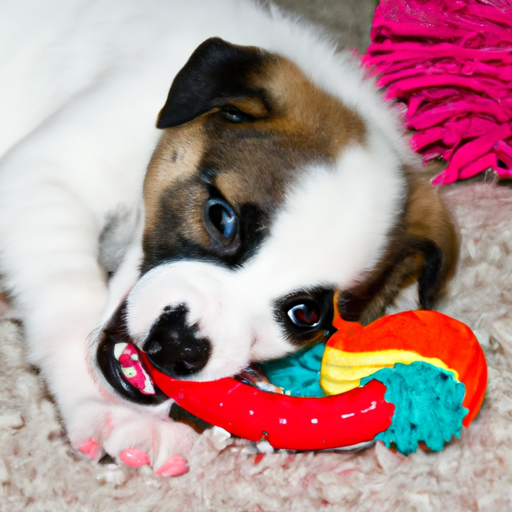As a caregiver to your adorable little furball, you’ve probably wondered, “At what age do puppies lose their teeth?” Well, you’re in the right place to get your answer. In this guide, we are going to explore this topic in-depth, taking you through every stage of your puppy’s dental journey.
Understanding Puppy Teeth Development
Just like human babies, puppies too are born toothless. Their first set of teeth, known as ‘deciduous’ or ‘milk teeth,’ start emerging when they are about 2 to 4 weeks old. By the time your puppy is around 8 weeks old, they should have a complete set of baby teeth.
This set comprises 28 teeth, including:
- 12 Incisors
- 4 Canines
- 12 Premolars
When Do Puppies Start Losing Their Teeth?
Puppies begin losing their baby teeth around the age of 3 to 4 months. This is when their adult teeth begin to push through the gums, causing the milk teeth to fall out. Throughout this process, known as ‘teething’, your puppy might experience some discomfort, just like human children do.
The Stages of Puppy Teething
Teething in puppies occurs in stages:
- Infancy (2 to 4 weeks): Milk teeth begin to emerge.
- Youth (3 to 6 months): Milk teeth fall out, and adult teeth start growing.
- Adolescence (6 to 7 months): Your puppy should have a full set of adult teeth.
Caring for Your Teething Puppy
During this teething phase, your puppy may exhibit certain behaviors such as chewing on furniture, shoes, or anything they can get their little paws on. To help your puppy through this period, you can:
- Provide teething toys to alleviate the discomfort
- Feed them soft foods
- Regularly check their mouth for any complications
Understanding Adult Dog Teeth
By the time your puppy is about 7 months old, all baby teeth should have fallen out, and a full set of 42 adult teeth should be in place.
The adult dog teeth include:
- 12 Incisors
- 4 Canines
- 16 Premolars
- 10 Molars
| Type of Tooth | Number in Puppies | Number in Adult Dogs |
|---|---|---|
| Incisors | 12 | 12 |
| Canines | 4 | 4 |
| Premolars | 12 | 16 |
| Molars | 0 | 10 |
Dental Care for Your Dog
As a caring pet parent, it’s crucial to maintain your dog’s dental health. Regular brushing, dental treats, and annual vet check-ups will help keep their teeth and gums healthy.
FAQ About Puppy Teeth
Q: How can I tell if my puppy is teething?
A: Your puppy may drool more than usual, chew on everything, and show signs of discomfort.
Q: What if my puppy’s baby tooth doesn’t fall out?
A: If an adult tooth is growing and the baby tooth hasn’t fallen out, consult your vet. They might need to extract it.
Q: Can I brush my puppy’s teeth during teething?
A: Yes, gentle brushing can help soothe your puppy’s gums.
Q: How often should I brush my dog’s teeth?
A: Ideally, you should brush your dog’s teeth daily. However, even 2-3 times a week can make a difference.
Remember, understanding your puppy’s dental development can help you provide the best possible care during their teething phase. This period can be tough, both for the puppy and you, but with plenty of patience, care, and regular check-ups, you can ensure that your puppy grows into a healthy, happy adult dog.



